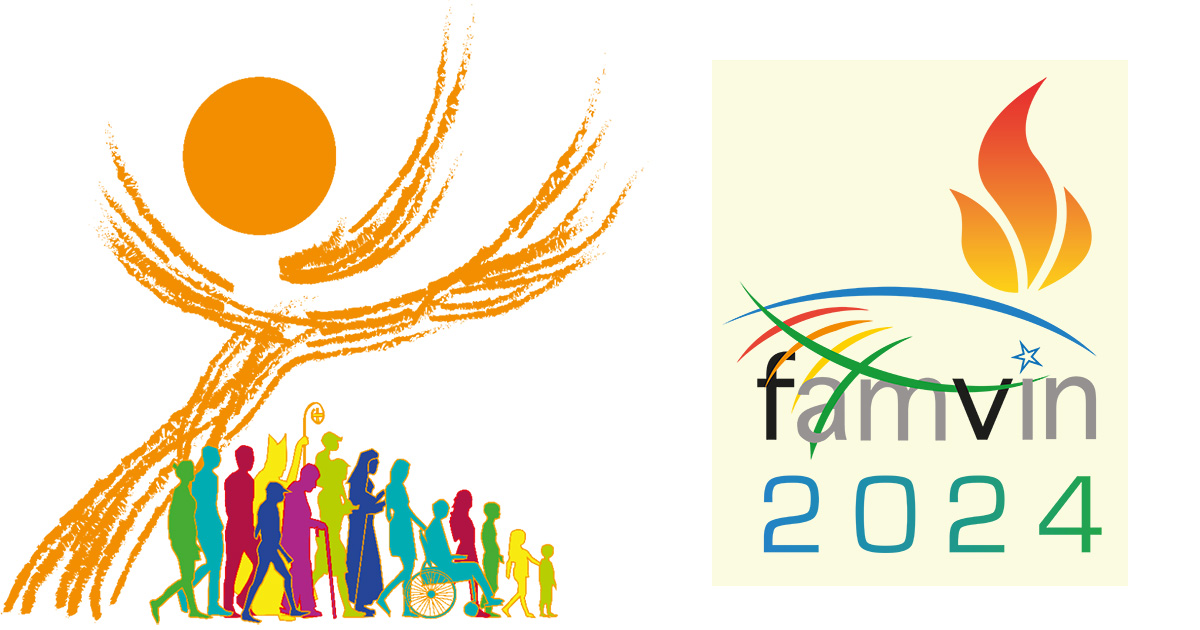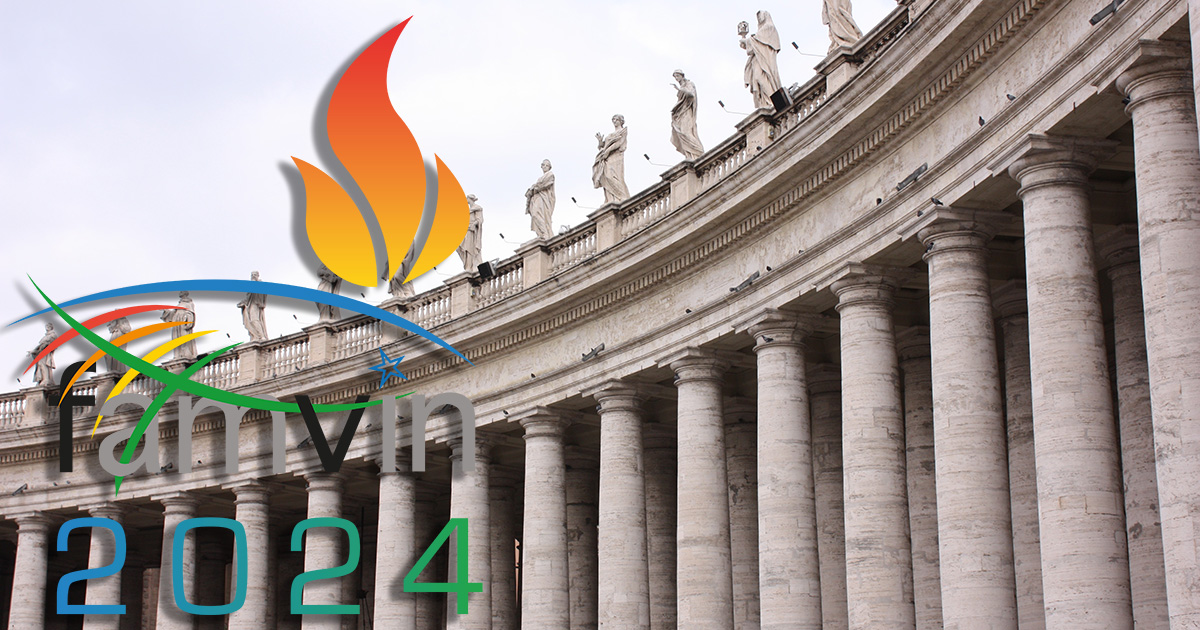Synodality has created quite a stir in recent times. From the start of his pontificate Pope Francis challenged the whole church to avoid self-referentiality by dialoguing with the excluded and those who are different from ourselves.
In recent years there has been a positive turn in favor of the poor and the excluded, in church documents and theologies. Think of liberation theologies, feminist theologies, migrant theologies, inculturation, interreligious dialogue, etc. All these emerged as an attempt to recover the “excluded others” in many of our church discourses.
But there is one area where the synodality discourse is silent, or at least, has generated less attention — ecological theologies and the care for our common home. The two recent encyclicals of the pope — Laudato Si and Laudate Deum — try to stir this interest among the faithful but it might take some time for it to reach popular discourse, even as the whole world is already alarmed with the disastrous effects of climate change.
The recent Synod gives the same impression. The Federation of Asian Bishops’ Conferences (FABC) Continental Report to the Synod writes: “Listening to the cry of the poor and the earth were issues that were not treated adequately given that these are grave concerns for the peoples of Asia” (ACAS, 70).
The Catholic Bishops’ Conference of the Philippines (CBCP) Report to the Synod entitled Salubong [“encounter” in Tagalog]. mentions “common home” three times and acknowledges that there are problems of environment in the Philippines. But it also tells us its own honest evaluation: “The church’s inattention to the environment also indicates its lack of understanding of the plight of the indigenous peoples and their needs” (Salubong, 5).
The Synodal Synthesis Report from the Vatican also talks about the same lack of responses to the cry of the earth: “Standing with those who are poor requires engaging with them in caring for our common home: the cry of the earth and the cry of those living in poverty are the same cry. The lack of responses to this cry makes the ecological crisis, and climate change, in particular, a threat to the survival of humanity” (SR No. 4).
This silence is alarming. Because if we read the UN Habitat Country Report 2023, Philippines ranks on top on world surveys: climate risks, extreme weather events, marine litter, etc. As of the latest survey, these are the four biggest environmental issues in the Philippines: air pollution, plastic pollution, marine pollution, sea level rise, etc.
Just a cursory reading of some surveys: Philippines is one of the top contributors of plastic pollution in the world. Our sea level rise is three times faster than world average which, if the trend continues, will submerge much of our cities by 2050. Some environmental events that dominate the Rappler pages this year [a Philippine news website] are mining in Sibuyan, Palawan, Romblon and Homonhon; oil spills in Oriental Mindoro; reclamation projects in Manila Bay, among others. All these have displaced indigenous people, farmers, fisherfolks, and millions of poor people who rely on the land and seas to survive. These projects are going on even as we speak.
Why the deafening silence? How can we not listen? Why are we not protesting? Who are accountable and how can we make them accountable? What do we need to do?
A synodality that does not take these ecological issues into account is not synodality at all. Listening — the first intuition of the Synod — is not just about listening to our lay people or the cry of the poor; it is also listening to the “cry of the earth”. Accountability in the church is not just about parish financial accounting or accountability to the victims of abuse in our churches which we all need to do; accountability is also about stewardship of the common home that God has given to us. Inclusion, which the Synod rightly insists upon, is also about including the environment and creation in our pastoral plans, theologies and liturgies.
Thirty-six years ago (1988), CBCP issued a landmark pastoral letter which was the first on ecology among Bishops’ Conferences throughout the world. This was their concluding challenge: “Our lands, forests, rivers cry out that they are being eroded, denuded and polluted. As bishops, we have tried to listen and respond to their cry. There is an urgency about this issue which calls for widespread education and immediate action. We are convinced that the challenge which we have tried to highlight here is similar to what Moses put before the people of Israel before they entered the Promised Land: ‘Today, I offer you the choice of life or death, blessing or curse. Choose life and then your descendants will live’.” (Deut. 30: 19-20).
We need to say it louder today. It has become more urgent than ever.
I think that synodality is not about us — it is not about “communion” among ourselves or “participation” inside our own isolated worlds. No, synodality is not about us. It about those whom we, the Church, have always excluded. It is about those whom the world has rejected — the poor, the hungry, the distressed, and last but not the least, the cosmos — they who are forgotten in this overly self-referential and anthropocentric world.
To conclude, let me go back to the Emmaus story. How did Cleopas and Mary know that the stranger is the Risen Jesus? Though their hearts were burning as he explained to them the Scriptures on the road, they still did not recognize him. But during the breaking of the bread, their eyes were opened. It looks like they remembered about how he broke the bread at the Last Supper.
The late Fr. Catalino Arevalo, SJ, had a very interesting commentary on this text. I heard this from him when I was yet a young seminarian a long time ago and I have not forgotten it ever since. “When Jesus broke the bread and shared it with them,” he said, “they recognized it was Jesus. Not only because he broke the bread and shared it. But because when he opened his hands, they saw the nail marks on them. All of a sudden, they knew it was Jesus.”
It might be good to remind ourselves of the risk Fr. Neri Satur, our first martyr of ecology who came from this diocese of Bukidnon, took in defending the environment in 1991.
In the end, the experience of the cross etched on the nail marks of our scarred and emaciated bodies which is the sign of our commitment to the Kingdom is the most credible mark of the resurrection in our lives. Through them, people will believe that Jesus is truly risen. And this experience of the Paschal Mystery — that difficult theological word — the Paschal Mystery present in the church, its ministers and members, but also in the groaning creation, is the only ground from which synodality can come alive.
Daniel Franklin E. Pilario, C.M.
Adamson University – Manila.
Excerpt of my talks at the CBCP Annual Retreat 2024 – Malaybalay.







0 Comments